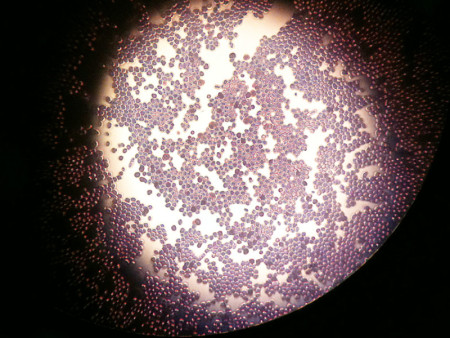Mar
31
Five New Yeasts Found That Make Ethanol From Biomass
March 31, 2015 | 1 Comment
University of East Anglia (UEA) researchers report finding five new strains of yeast capable of turning agricultural by-products, such as straw, sawdust and corncobs into ethanol, the well known alcohol biofuel.
Its estimated that more than 400 billion liters of ethanol could be produced each year from unused crop production materials. The research team said that their findings could help to create biofuel that is more environmentally friendly and ethically sound than other sources because it would make use of unused crop products.
Current processes to generate ethanol from straw and other by-products are complex and inefficient because high temperatures and acid conditions are necessary in the glucose-release process. But this treatment process causes the waste to breakdown into compounds which are toxic to yeast (furfural and hydroxymethylfurfural) making fermentation difficult.
One way to avoid these problems is to use genetically modified yeasts.
However, the new research has found five strains of naturally occurring yeasts which could be used successfully in the fermentation process.
Lead researcher Dr Tom Clarke, from UEA’s School of Biological Sciences, said, “Dwindling oil reserves and the need to develop motor fuels with a smaller carbon footprint has led to the explosion of research into sustainable fuels. Bioethanol is a very attractive biofuel to the automotive industry as it mixes well with petrol and can be used in lower concentration blends in vehicles with no modifications. In Brazil, vehicles where run purely on bioethanol have been on the roads since 1979.
“Breaking down agricultural waste has previously been difficult because many strains of yeast necessary for fermentation are inhibited by compounds in the straw. Their toxic effects lead to reduced ethanol production,” he said.
The research team investigated more than 70 strains of yeast to find the most tolerant. They found five strains which were resistant to the toxic compound furfural, and which produced the highest ethanol yield.
Of the five furfural tolerant strains S. cerevisiae NCYC 3451 displayed the greatest furfural resistance. The genomic lineage of this strain links it to yeast used in the production of the Japanese rice wine Sake.
“These strains represent good candidates for further research, development and use in bioethanol production,” added Dr Clarke.
The research was carried out in collaboration with the Institute of Food Research and the National Collection of Yeast Cultures that is based at there. It was funded by the Biotechnology and Biological Sciences Research Council and the Department for Environment, Food & Rural Affairs.
The new yeast finds are significant. The traits they express are sure to be closely studied for engineering into more kinds of ethanol producing microbes. So far, the U.S. renewable fuels standard is held up by an absence of successful non crop based ethanol production. These new finds are sure to help get the technology back on the now much delayed timeline.
While the new finds are not total solutions, the announcement is welcome news.
Comments
1 Comment so far



This is awesome! It really feels like things are progressing for the better. Even if it’s a while until anything comes of this, it’s good to know it will happen, one day.
I’ve also been learning about how we’re now adding more capacity for renewable than fossil fuels – renewable energy is finally winning a bit!